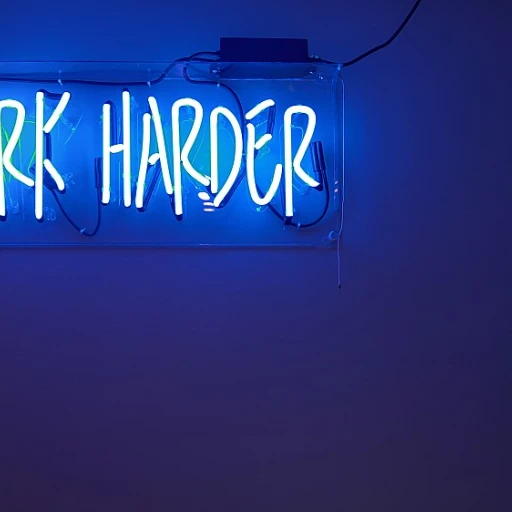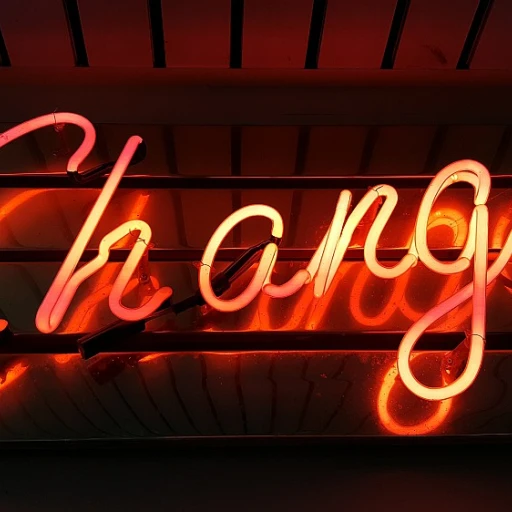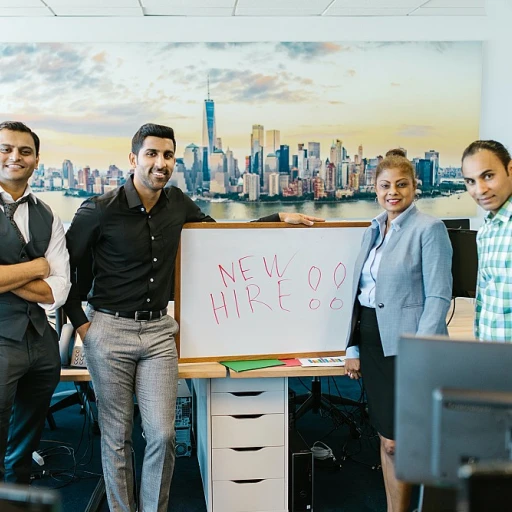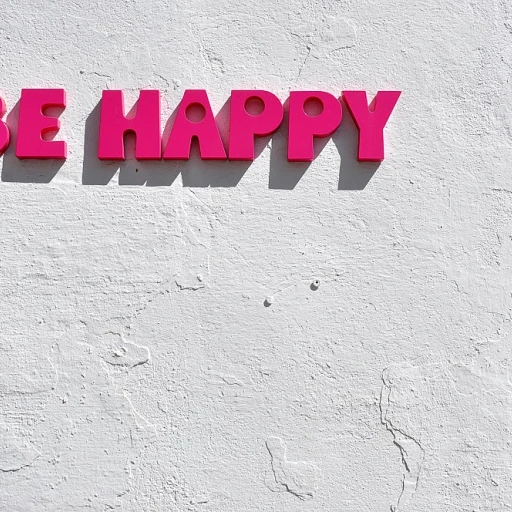
Understanding the purpose of team interview questions
Why Team Interview Questions Matter
When you step into an HR interview, expect questions about your experience working in a team. These questions are not just about your ability to get along with others. They help the interviewer assess your communication skills, problem solving approach, and how you contribute as a team member. Companies want to know if you can collaborate, adapt, and add value to a group setting. Your answers reveal your teamwork skills and your potential fit for the company culture.
What Interviewers Are Looking For
Interviewers use team-related questions to evaluate several key areas:
- Ability to work with diverse team members – Can you adapt to different personalities and working styles?
- Communication skills – How do you share ideas, listen, and resolve conflicts?
- Problem solving in a group – Are you proactive when challenges arise in a project?
- Team player attitude – Do you support others and contribute to group success?
- Leadership potential – Even if you are not in a formal leadership role, do you show initiative?
How Team Questions Shape the Interview
Teamwork interview questions can take many forms. You might be asked to describe a time you worked on a challenging project, or how you handled a conflict with a team member. Sometimes, group interviews are used to observe candidates' real-time interactions. The goal is to assess candidate ability to work in a team, not just individual skills.
Understanding the purpose behind these questions helps you prepare stronger answers. It also helps you spot red flags in your own experience that you might want to address or reframe. For more insights on how situational questions are used in HR interviews, check out this guide to mastering situational questions in HR interviews.
Common types of team interview questions
Types of Teamwork Questions You’ll Encounter
When preparing for HR interviews, candidates often face a variety of questions designed to assess their teamwork skills and ability to work effectively with others. These questions help interviewers evaluate how well a candidate can function as a team member, handle group dynamics, and contribute to the company’s goals. Understanding the types of questions you might encounter is essential for crafting strong answers and avoiding common pitfalls.
- Behavioral Questions: These questions ask you to describe a time when you worked in a team or faced a challenge with team members. For example, “Can you describe a time when you had to resolve a conflict within your team?” or “Tell us about a project where teamwork was essential.”
- Situational Questions: Here, you might be presented with a hypothetical scenario and asked how you would respond. For instance, “If a team member is not contributing to a group project, what would you do?”
- Role-Specific Questions: Some questions focus on your ability to work in a team within the context of the specific job or role. For example, “How do you ensure effective communication with team members in a remote work environment?”
- Group Interview Questions: In group interviews, candidates may be asked to work together on a task or discuss a problem as a group. Interviewers observe how each candidate interacts, communicates, and collaborates with others.
- Assessment of Communication Skills: Questions may target your ability to share ideas, listen actively, and provide constructive feedback. For example, “How do you handle disagreements with team members?”
What Interviewers Look For
Interviewers use these questions to assess candidate ability to work as a team player, communicate effectively, and contribute to group success. They are also looking for red flags, such as blaming others or struggling to adapt to group work. Your answers should demonstrate your problem solving skills, willingness to collaborate, and ability to support team members.
For more in-depth strategies on how to showcase your problem solving skills in HR interviews, you can explore this resource on evaluating problem solving skills in HR interviews.
Examples of Teamwork Interview Questions
| Interview Question | What It Assesses |
|---|---|
| Describe a time you worked on a challenging team project. | Ability to handle pressure, collaboration, and project management |
| How do you handle disagreements with team members? | Communication skills, conflict resolution, teamwork |
| Give an example of when you had to adapt to a new team role. | Flexibility, adaptability, willingness to support the group |
| What would you do if a team member was not contributing? | Problem solving, leadership, ability to motivate others |
| How do you ensure everyone’s ideas are heard in a group? | Inclusivity, communication, respect for diversity |
Understanding these common types of questions and what they assess will help you prepare strong, relevant answers that highlight your unique value as a team member. In the next section, you’ll learn how to structure your responses for maximum impact during your HR interviews.
How to structure your answers for maximum impact
Building a Compelling Response to Team Interview Questions
When you are asked about your experience working in a team during an interview, your answer should do more than just describe what happened. It should show your ability to work with others, communicate effectively, and contribute to the success of the group. Structuring your answer clearly helps the interviewer assess your teamwork skills and your fit for the company culture. A practical way to approach these questions is by using the STAR method:- Situation: Briefly set the context. What was the project or challenge? Who were the team members involved?
- Task: Explain your role and what the team needed to achieve.
- Action: Describe the steps you took, focusing on your communication skills, problem solving, and how you supported the group.
- Result: Share the outcome. Did the team meet its goals? What did you learn about teamwork?
- Keep your answer focused and relevant to the job or company.
- Highlight your unique contributions, but also show respect for other team members’ input.
- Use specific examples that demonstrate your ability to work in a team, such as leading a project or supporting a colleague during a challenging time.
- Showcase both your technical and interpersonal skills, especially your ability to adapt and communicate.
Mistakes to avoid when answering team interview questions
Common Pitfalls When Discussing Teamwork
When candidates face team interview questions, it’s easy to fall into traps that can weaken your answer. Interviewers use these questions to assess your ability to work in a group, your communication skills, and how you handle challenges with team members. Here are some frequent mistakes to watch out for during interviews:
- Giving Vague Answers: Avoid general statements like “I’m a team player” without providing a concrete example. Interviewers want to hear about a specific time you contributed to a project or helped resolve a conflict within a team.
- Taking All the Credit: Focusing only on your own achievements can signal a lack of collaboration. Instead, highlight how you worked with other team members and what the group accomplished together.
- Blaming Others: When describing a challenging situation, don’t place blame on other team members. This can raise red flags about your ability to work in a team and your problem solving approach.
- Overlooking Communication: Failing to mention how you communicated with your team can make your answer less convincing. Effective teamwork relies on clear communication skills, so show how you kept everyone informed and aligned.
- Ignoring the Role of the Company: Not connecting your teamwork example to the company’s values or the job role can make your answer seem less relevant. Tailor your response to show you understand what the company is looking for in a candidate.
How to Avoid These Mistakes
To make your answers stand out in group interviews or when asked about your ability to work in a team, keep these tips in mind:
- Use the STAR method (Situation, Task, Action, Result) to structure your answer and provide a clear, detailed example.
- Showcase your teamwork skills by describing a time you collaborated with others to achieve a goal.
- Demonstrate your ability to listen, communicate, and adapt to different team members’ working styles.
- Highlight how your actions benefited the group and contributed to the success of the project.
By avoiding these common mistakes, you’ll present yourself as a strong team member who can thrive in any group setting and add value to the company.
How to highlight your unique value in a team setting
Showcasing What Makes You a Standout Team Player
When you are in an HR interview, it is not enough to simply say you are a team player. Interviewers want to see clear evidence of your unique value in a group setting. This is your chance to differentiate yourself from other candidates by highlighting the specific skills and experiences that make you an asset to any team.
- Emphasize your unique skills: Think about what you bring to a team that others might not. For example, do you have strong communication skills, a knack for problem solving, or the ability to mediate conflicts between team members? Mention these strengths when answering teamwork interview questions.
- Share relevant examples: Use real examples from your work history to illustrate your ability to work effectively in a group. Describe a time when your contribution made a difference to the team’s success. This could be a project where your input helped the group overcome a challenge or achieve a goal ahead of time.
- Highlight your adaptability: Teams often face unexpected changes. Show your ability to adapt by describing a situation where you adjusted your approach to meet the needs of the group or the company.
- Demonstrate leadership and support: Even if you were not the official leader, talk about moments when you took initiative or supported a team member. This shows your willingness to step up and help the team succeed.
- Connect your values to the company: Research the company’s culture and values. In your answer, explain how your approach to teamwork aligns with what the company is looking for in a candidate.
| What to Highlight | Example Answer |
|---|---|
| Problem solving in a group | "In my previous job, our team faced a tight deadline on a major project. I suggested breaking the work into smaller tasks and volunteered to coordinate updates. This helped us finish ahead of schedule and improved our group communication." |
| Supporting team members | "During a group interview for a new project, I noticed a team member struggling with a technical issue. I offered to help, which not only solved the problem but also built trust within the team." |
| Adapting to change | "When our company restructured teams, I quickly learned new processes and helped other members adjust, ensuring our workflow stayed on track." |
Remember, interviewers use team interview questions to assess candidate ability to work well with others, communicate effectively, and contribute to group success. By providing specific examples and focusing on your unique strengths, you can show why you are the right fit for the job and the team.
Sample answers to challenging team interview questions
Demonstrating Teamwork Skills with Real Examples
When facing teamwork interview questions, candidates should use specific examples to showcase their ability to work effectively in a team. Interviewers often look for evidence of communication skills, problem solving, and collaboration. Here are sample answers to common questions that assess candidate ability to thrive as a team member.
- Describe a time you had to resolve a conflict within your team.
Example answer: "In my previous job, our group was working on a project with a tight deadline. Two team members disagreed on the approach. I facilitated a meeting where everyone could share their perspectives. By encouraging open communication and focusing on the project goals, we reached a compromise that combined both ideas. The project was completed on time, and the team felt more united afterward." - Can you give an example of when you supported a team member who was struggling?
Example answer: "During a group interview project, one candidate was having trouble with a new software tool. I offered to walk them through the process after work. This not only helped them complete their tasks but also improved our overall team performance. It reinforced my belief in the importance of supporting team members to achieve common goals." - Tell us about a time you contributed to a successful team project.
Example answer: "In my last role, I was part of a team tasked with launching a new product. I took the lead on coordinating communication between departments. By ensuring everyone was informed and involved, we avoided missteps and launched ahead of schedule. This experience highlighted my ability to work in a group and keep team members aligned." - How do you handle working with team members who have different working styles?
Example answer: "I once worked in a team where some members preferred detailed planning, while others were more spontaneous. I suggested we combine both approaches by setting clear milestones but allowing flexibility in how tasks were completed. This balance improved our workflow and respected everyone’s strengths."
Tips for Crafting Your Own Example Answers
- Choose examples that clearly show your teamwork skills and ability to work with others.
- Highlight your communication skills and problem solving abilities.
- Focus on your role in the team and the positive outcome achieved.
- Avoid red flags like blaming others or failing to resolve conflicts.
- Show how you support other team members and contribute to group success.
In group interviews or when answering interview questions about teamwork, remember that interviewers want to assess candidate fit for their company culture and team dynamics. Use real examples to demonstrate you are a team player who can add value to any working team.













